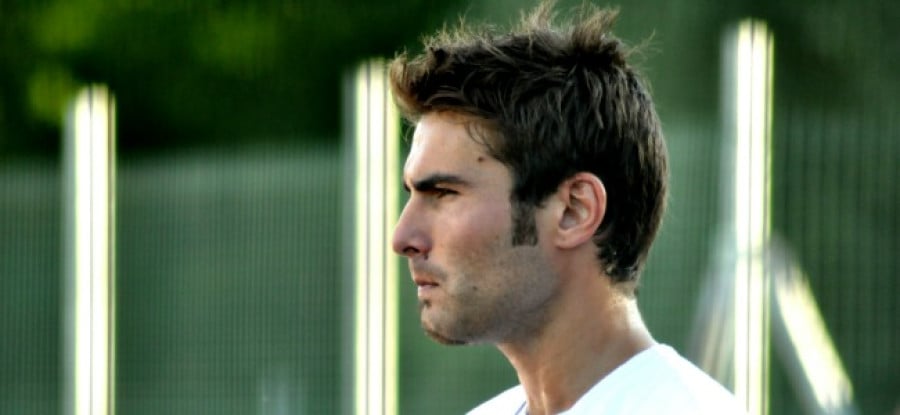Terminating without just cause: when is a new club jointly liable for compensation under the FIFA Regs? The latest Mutu decision

The latest decision1 by the Court of Arbitration for Sport ("CAS") in the lengthy case involving former Chelsea player, Adrian Mutu (the “Mutu Award”), has given helpful guidance when, in cases involving unlawful breaches of contract or contract terminations by the player, the player’s new club is jointly liable under the FIFA Regulations on the Status and Transfer of Players (“RSTP”) to pay the former club compensation.2
The Mutu case involved the club terminating the player’s contract following the player’s unlawful breach, but the decision also relates to the more common cases of when it is the player who unlawfully terminates his contract.
History of Adrian Mutu’s cases
Facts
Chelsea lawfully terminated Mutu's employment contract in October 2004 for a repudiatory breach after the player tested positive for cocaine.3 Mutu was banned by the English Football Association for seven months in November 2004,4 which was extended by FIFA's Disciplinary Committee to have worldwide effect.
Despite being banned, Mutu moved to sign a five-year contract with Juventus in January 2005. Juventus, though, were unable to register him directly, as they had already signed their permitted annual number of non-EU players from abroad. There was at the time, however, no restriction imposed on the number of non-EU players signed from other Italian clubs and so Livorno, a club who had a close relationship with Juventus and who relied upon loan signings from larger Italian clubs, agreed to register Mutu first and then transfer him to Juventus two days later in order to circumvent the quota restrictions. Mutu eventually made his debut for Juventus in May 2005, once his worldwide ban came to an end.
In addition to terminating his contract for a repudiatory breach, Chelsea claimed damages from Mutu for the losses that they incurred flowing from his £15.8m transfer fee from Parma.
The procedural history has been as protracted as the case which has, in some form, come before the CAS on three previous occasions.
Previous cases before the CAS and DRC
The Football Association Premier League Appeals Committee (FAPLAC) initially found that Mutu’s actions amounted to a breach of his contract without just cause that entitled Chelsea to treat the contract as at an end. As a result, the FAPLAC also confirmed that Chelsea were entitled to seek compensation against Mutu5 from FIFA’s Dispute Resolution Chamber (“DRC”) in accordance with Article 21 of the 2001 version of the RSTP, which provided for compensation to be payable by the player in the event that there is a unilateral breach of contract without just cause.
Mutu appealed that decision to CAS who dismissed the appeal in December 2005 and confirmed that Mutu had breached his contract with Chelsea without just cause (CAS 2005/A/876 Mutu v Chelsea Football Club).6 Despite Mutu claiming that he was not liable for compensation because it was Chelsea who terminated his contract, CAS concluded that there is no distinction between a player terminating his contract and a player unlawfully breaching his contract through serious misconduct. In this case, it was Mutu’s unlawful breach of contract that gave rise to the claim for compensation irrespective of the fact that it was Chelsea who terminated the contract as a result of that breach.7
Following that decision, Chelsea applied to the DRC for a compensation award against Mutu who initially decided that it did not have jurisdiction to make a compensation award.8 However, CAS annulled that decision in May 2007 (CAS 2006/A/1192 Chelsea Football Club Limited v Adrian Mutu).9 The case was referred back to the DRC and in May 2008 the DRC ordered Mutu to compensate Chelsea in the sum of £14.5m. Mutu subsequently appealed the decision to CAS, and in July 2009 the CAS panel upheld the DRC's May 2008 decision (CAS 2008/A/1644 Adrian Mutu v Chelsea Football Club Limited).10
A further appeal by Mutu to the Swiss Federal Tribunal was rejected in 2010, and he is currently pursuing a complaint against Switzerland before the European Court of Human Rights.11 Mutu’s appeal in those proceedings effectively challenges the CAS arbitration system at a fundamental level and a decision should be forthcoming soon, but that topic should be the subject of a separate commentary.
To continue reading or watching login or register here
Already a member? Sign in
Get access to all of the expert analysis and commentary at LawInSport including articles, webinars, conference videos and podcast transcripts. Find out more here.
- Tags: Contract Law | Employment Law | England | FIFA | FIFA Dispute Resolution Chamber | FIFA Regulations on the Status and Transfer of Players | Football | Football Association Premier League Appeals Committee | Governance | Italy | Regulation
Related Articles
- Initial considerations from the latest Adrian Mutu compensation ruling
- Buy-out clause disputes under the FIFA Regulations – when to take action
- Expedited procedures before the Court of Arbitration for Sport
- A round up of recent football case law
Written by
John Shea
John is a senior associate in the Sports Business Group at Lewis Silkin specialising in contentious, regulatory and disciplinary issues for clubs, agencies, governing bodies and athletes

 Global Summit 2024
Global Summit 2024
Ramil Jahangirov
In light of the above-mentioned decision, what will be the guarantee of payment of compensation if the Player is solely liable for unilateral breach without just cause? In case if the Club must pay, the system is clear - disciplinary proceedings, fine, points deduction and etc. What about the players? The only way is to ban them from playing, but it doesn't seem real because of their right for effective occupation. I suppose, that the recent CAS decision gives players' more advantage, although they are protected enough by the rules.
reply